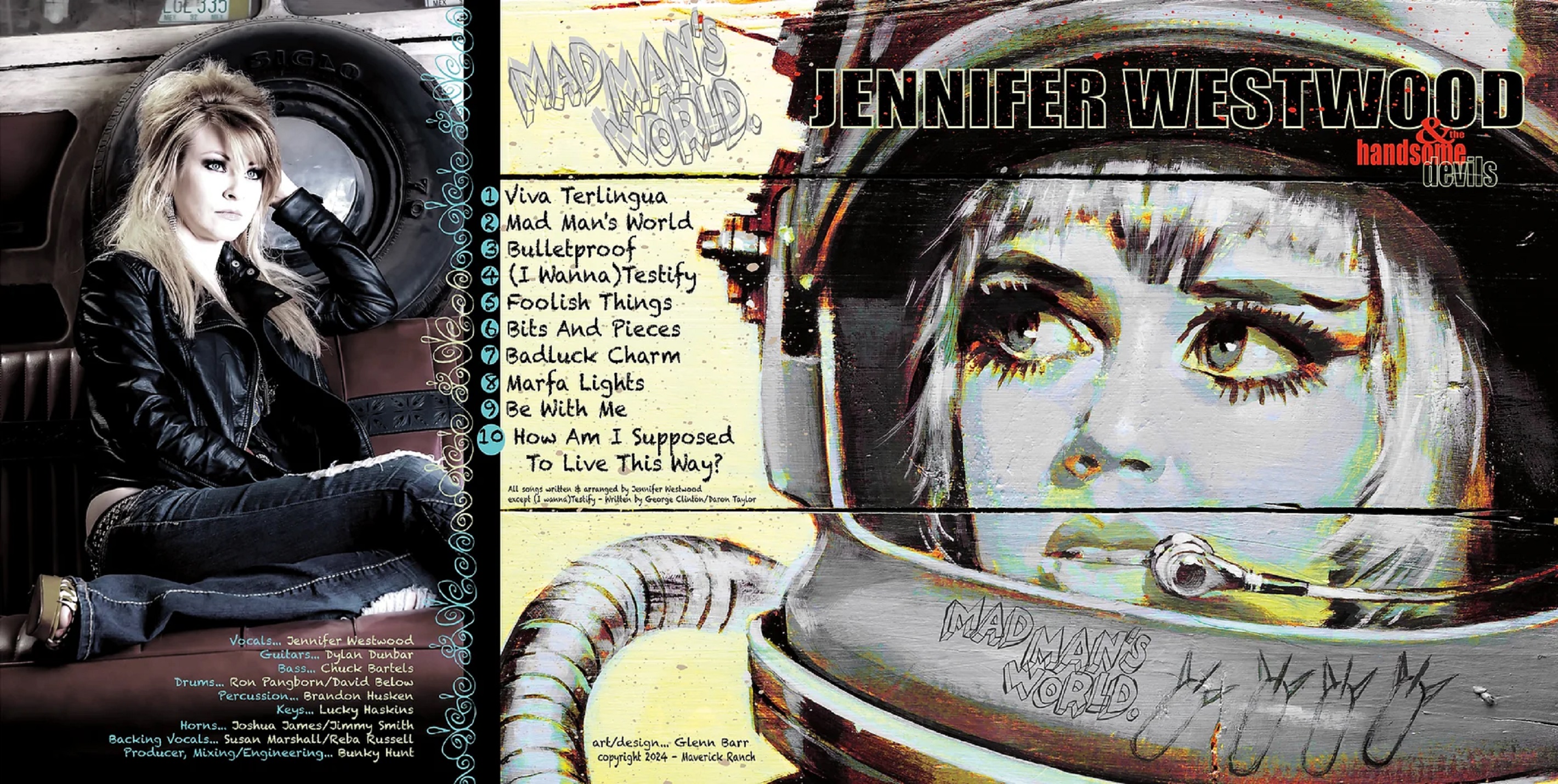Jennifer Westwood’s latest album, Madman's World, is a bold declaration of American roots music, infused with a modern edge that marries Stax-sized soul, gospel grit, and dive-bar rock & roll. It's a sound crafted for Rust Belt roadhouses, Texas honky-tonks, and Memphis pool halls — a sound that's uniquely and proudly her own.
Before launching her career and releasing acclaimed albums like Madman's World, Westwood found herself constrained, unable to fully explore her sound. Raised within a fundamentalist faith, she honed her vocal skills singing gospel in church. Her voice left a lasting impression, even captivating a professor of music associated with Aretha Franklin’s father, Bishop C.L. Franklin. Despite this, Westwood felt stifled, yearning for self-expression and individuality that the church environment restricted. Seeking liberation, she turned to music as a means to reclaim her lost identity.
Madman's World is her second album of amplified Americana. Featuring Detroit natives like guitarist Dylan Dunbar (Whitey Morgan) and bassist Chuck Bartels (Sturgill Simpson), it blends genres and geographies, producing a soulful sound reminiscent of Muscle Shoals rather than Motown.
"The album feels satisfyingly reckless to me," Westwood says, citing influences like Tom Waits, Waylon Jennings, and Sister Rosetta Tharpe. "Because I'm not just embracing all these forbidden feelings that were once denied to me — like pride, self-worth, self-expression, autonomy, even love — but expressing them in my own way, out loud, as a means of liberating myself. That's what makes me have a born-again feeling, like I was supposed to get with my faith."
Madman's World features a wide range of sounds. Tracks like "How Am I Supposed To Live This Way" showcase larger-than-life vocals against a backdrop of funky organ and fiery fretwork, inspired by Tony Joe White. On "Bad Luck Charm," Westwood’s raspy, full-throated melodies and bluesy guitar licks celebrate breaking free from past restraints. "Viva Terlingua," with its Latin rhythms and mariachi horns, paints a southwestern landscape far from her Midwestern roots, while "Foolish Things" delivers Tex-Mex twang.
Westwood's gospel roots are a defining element throughout the album. "Bulletproof" leans into gospel's grit, transforming its religious essence into a bluesy anthem of resilience. "Gospel is a feeling you get inside yourself," she explains. "It's about overcoming adversity and the hope of a better day, and that's what Madman's World is all about, too." The title track explores gender politics through the metaphor of the Garden of Eden, challenging age-old narratives.
"I'm reclaiming gospel music for myself," Westwood states. "I'm reclaiming my independence, how I'm allowed to feel love, who I'm allowed to love, how I'm allowed to express myself, and what's allowed to thrill me. I'm reclaiming myself."
Madman's World extends beyond personal liberation, resonating with a wider audience. "There's a compound layer of cultural ideas that parallel my religious experience," Westwood says. "Including often unreasonable and dehumanizing expectations of what a woman should be, how they should act, and how they should not react to adverse experiences. These songs are my response. Sometimes, I’ve felt so alone with my feelings, but there are hundreds of thousands of people like me, feeling isolated in their journey to break free."
Madman's World is an album for these isolated listeners. It’s a battlecry and a soundtrack for reclamation and resilience, delivered by a survivor who has experienced both.
Jennifer Westwood makes a loud, liberated version of American roots music. It's a modern sound influenced by the singer's old-school favorites, blending Stax-sized soul with gospel grit and dive-bar rock & roll. A sound built for Rust Belt roadhouses, Texas honky-tonks, and Memphis pool halls. A sound that's purely — and proudly — her own.






















